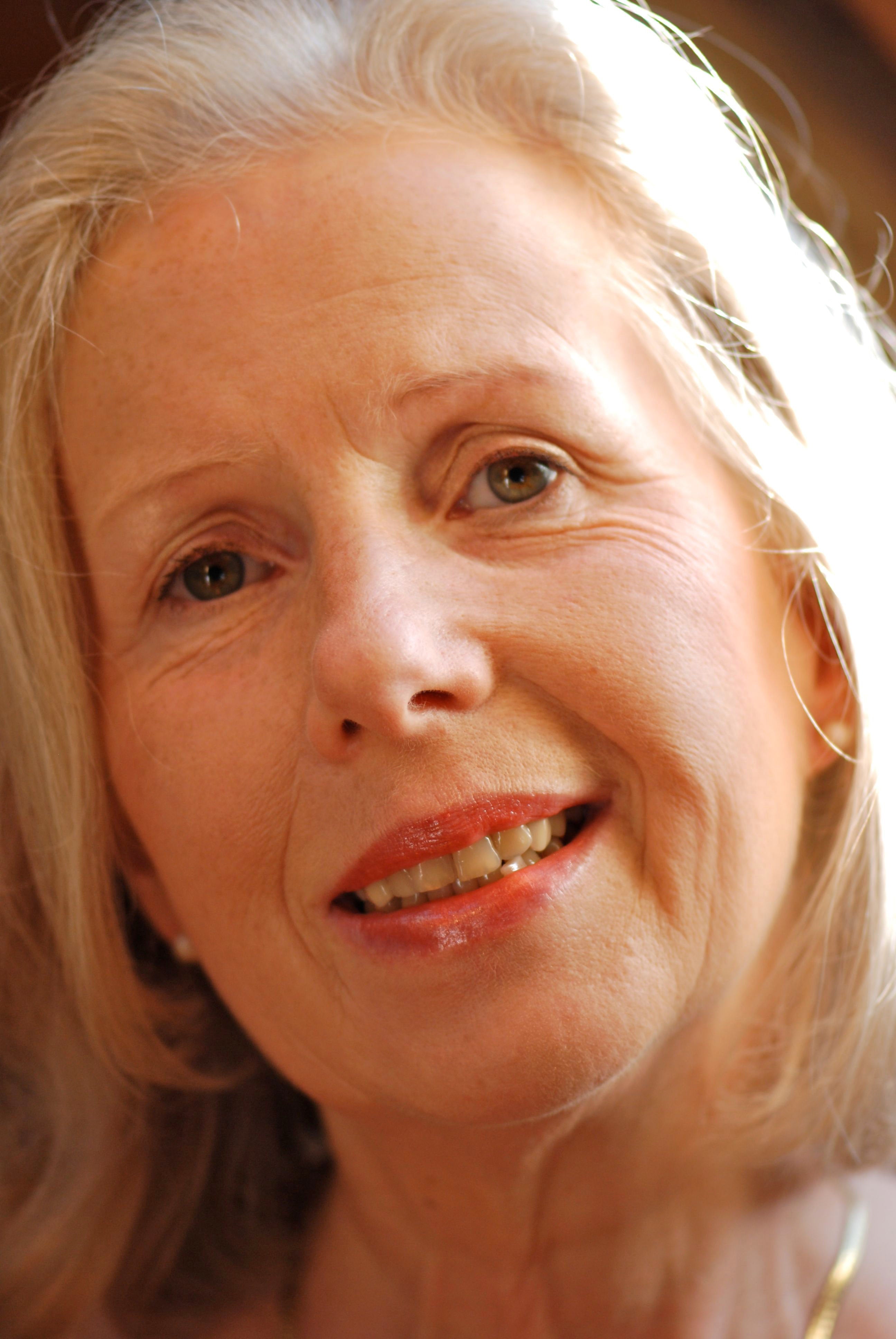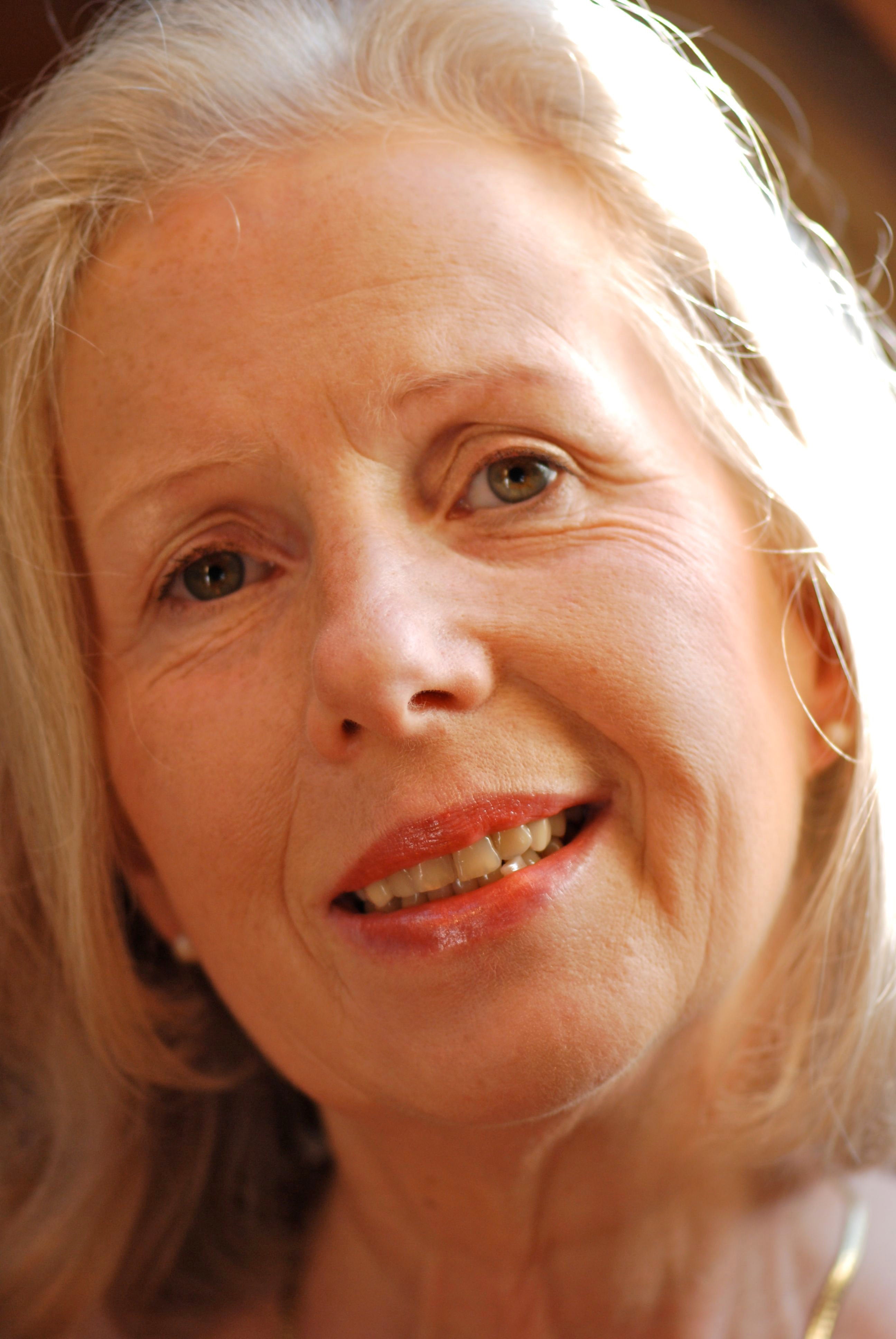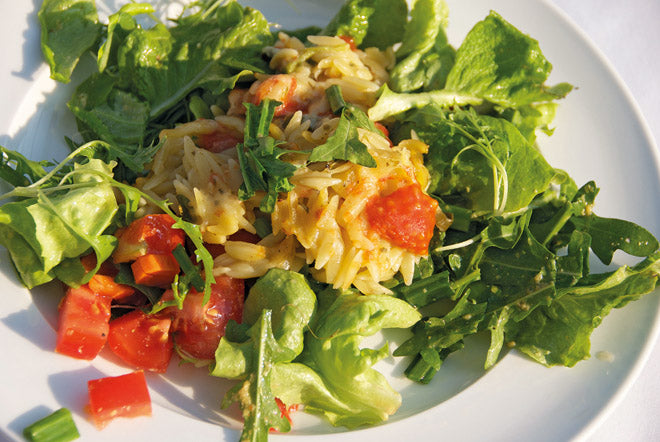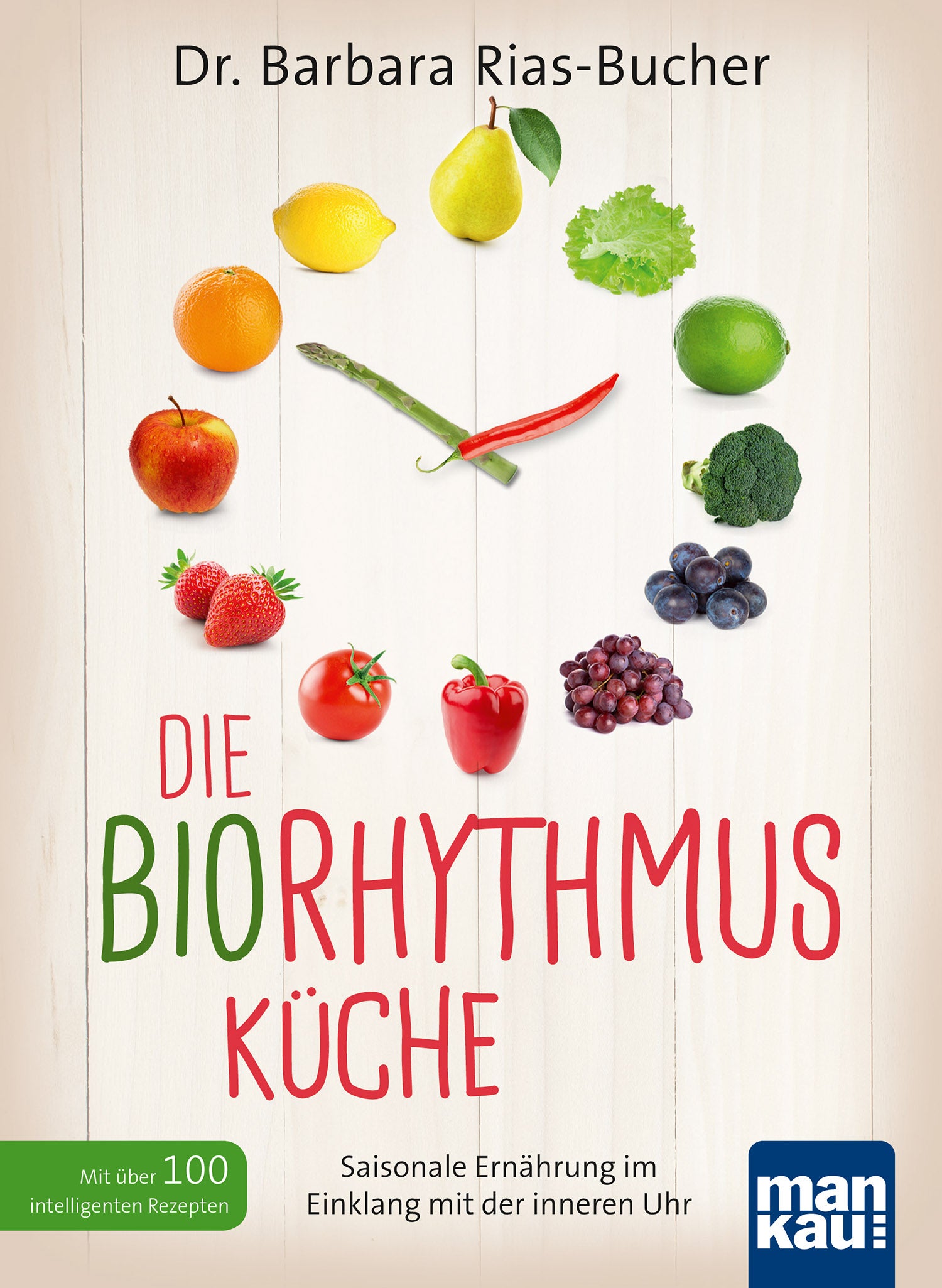
Biorhythm cuisine: “Eating according to your own internal clock means eating intelligently and mindfully!”
Biorhythm cuisine: “Eating according to your own internal clock means eating intelligently and mindfully!”
Interview with the renowned cookbook author and nutrition expert Dr. Barbara Rias-Bucher
"All of our life processes are based on our biorhythm, and those who want to resonate with this rhythm appreciate the variety and enjoyment of good food and are happy to take the time to carefully select and prepare it. Over time, we are rewarded for this conscious way of eating with a high feel-good factor, because our organism and our immune system also follow our internal clock and thank us with health, well-being and a good body feeling without weight problems." The successful cookbook author and nutrition expert Dr. Barbara Rias-Bucher , author of the guide "The Biorhythm Kitchen" , advocates a mindful and appreciative approach to the gifts of nature and offers over a hundred varied recipes for an authentic and individual diet based on your personal biorhythm."
Is biorhythm cuisine a new kind of “nutritional philosophy”? What principles are part of this approach?
Rias-Bucher: Eating according to your biorhythm is certainly nothing new, because in traditional Chinese medicine the so-called organ clock is "read" in the same way as in Ayurvedic nutrition. The chronobiology that forms the basis of my biorhythm cuisine has been scientifically researched since the 1970s and, as an unconscious eating pattern, probably goes back to the beginnings of humanity.
In short: Eating according to your biorhythm simply means following your own internal clock. The life processes of us humans, but also of animals and plants, run according to this internal clock: it controls appetite and hunger, influences our mood through the release of hormones, helps to provide energy through digestion, determines when we are wide awake and when we are tired. The basic result of these natural processes is that, firstly, when selecting and preparing our food, we pay attention to the balance between man and nature by taking more time to cook and eat. Those who are in tune with their biorhythm love the color and variety of good food as much as they enjoy it. Secondly, we must see food as a precious gift from nature that we must not waste: you don't throw a beautiful gift in the trash! Thirdly, we should stay healthy through fresh, authentic food, through individually possible self-sufficiency and through regular exercise. This mindfulness of ourselves is not selfishness, but an expression of responsibility towards our fellow creatures.
Your book says that cooking and eating according to your biorhythms gives you more zest for life. What should you definitely keep in mind to achieve this goal?
Rias-Bucher: First of all, we have to learn to read our internal clock: Am I a morning person – an early bird – or an owl who only really becomes active in the evening and has a hard time getting going in the morning? Am I one of the polar bears who wake up as soon as it's cool outside, or one of the lizards whose spirits only awaken again with the spring sun? These rhythms don't remain constant, by the way: the sun resets our internal clock every morning. In addition, biorhythms are also linked to age; morning people are particularly common among children and senior citizens.
Once you have discovered your own personal rhythms, you will understand certain preferences better and can adapt to them. If you like a leisurely breakfast, you don't have to do without it on weekdays either - just consider whether it's worth getting up an hour earlier for it. If, on the other hand, you love a long dinner - go for it! Because it's a nutritional myth that you gain weight at dinner or at a late meal. Basically, it's just a matter of eating as much as your body can use. The type of meal also plays a role and is determined by your metabolism: some people want to eat hot food at least once a day, while others are happy with salad and sandwiches, muesli and antipasti for days. The trick is to interpret our needs correctly; as signals from the body, they motivate us to choose the right food at the right "metabolic time". That's why it's okay to break away from learned eating habits.
However, biorhythm cooking is by no means about just following culinary needs, i.e. simply eating whatever you want. Eating properly requires knowledge and, unfortunately, a certain amount of discipline. I want to convey both to you with my nutritional concept: In my book, I recommend three regular main meals, the dishes for which are selected according to your personal biorhythm. If you know whether you are an early bird or an owl , you can use the symbols on each recipe to identify which meal at which time of day you personally like. Over time, you will feel the feel-good factor of this conscious way of eating. Because all of our organs and of course our immune system are subject to biorhythm.
A crucial factor in healthy and enjoyable nutrition is time: time in which vital processes take place in the organism - time that is reflected in the rhythms of nature, and time for growing, preparing and enjoying food. Where do we get this time from in our daily lives?
Rias-Bucher: We don't "lack" time, as many people think, we just use it differently. Nothing has changed in the fact that there are 24 hours in a day. In the past, people had to spend most of their daytime and even their lifetime on procuring and preparing food; free time as we know it today has only existed for about 60 years and only for a relatively small part of humanity. If you look at the history of humanity, "slaving away" should correspond much more to our biorhythm than lazing around. That simply means that we have to organize ourselves differently and - I say this quite deliberately - maybe even give up some of our free time. From my own experience, I know that mini-self-sufficiency, urban gardening, harvesting from orchards and shopping on the farm are time-consuming. But I am firmly convinced that we are by no means "sacrificing" this time: growing vegetables and harvesting your own fruit can mean a huge increase in fitness and enjoyment, appreciation of our food and understanding of natural processes. And quite pragmatically: If you produce some of your own food, you save money - including on the gym -, get a lot of praise for your fresh vegetables, sleep better, have no problems with your weight and hardly any vitamin D deficiency, feel young for longer and can switch off better in order to come up with new, positive thoughts.
When it comes to our daily diet, we should definitely listen to our “internal clock”. What tips or rules are particularly recommended here?
Rias-Bucher: Stick to three main meals a day. If you don't want to eat anything in the morning, you should at least drink something warm: coffee or tea, hot chocolate or a smoothie, which you can also mix with hot drinks. If you don't eat breakfast, you need lunch around 11 a.m. Always eat lightly at lunchtime, take your time and enjoy your meal as a time out - ideally together and with good conversation, but without a smartphone! In the evening, we enjoy food best between 5 p.m. and 9 p.m.; at this time we relax, our taste buds are particularly sensitive, and our stomach and intestines are receptive.
You advocate predominantly plant-based food as the basis of our diet. Does this mean a vegetarian or even vegan lifestyle?
Rias-Bucher: No, I'm just talking about the diet that we humans have been used to since time immemorial, which our metabolism is programmed for. And that is neither vegan nor a paleo diet, but a mixed diet with a high proportion of plant-based foods. There are various reasons for this: Plant-based foods build up body fluids and thus moisten our organs. As we know, all life comes from water and only when our fluid balance is correct does the skin stay firm, the mucous membranes can fend off germ attacks and the kidneys work properly. Due to the high mineral content, plant-based food has a balancing effect, and a natural balance also benefits blood pressure. Plants nourish our intestinal flora with their fiber content. An intact intestinal flora reduces stress hormones and protects us from infections. Finally, vegetables, fruit and herbs relieve the strain on our digestive system because they are almost fat-free. That is why people who eat mainly vegetarian usually have neither figure nor digestive problems. For all these reasons, so many people now eat mainly meat-free or "moderately" vegetarian with eggs and dairy products.
Biorhythm cuisine also includes the balance between man and nature and thus the growing need for authenticity and sustainability. Which current developments should we support and which should we be viewed with skepticism?
Rias-Bucher: Farmers and organic gardeners with farm shops, farmers' markets and organic farms that produce plant and animal products sustainably and responsibly need our support so that they can compete with the agricultural industry and food companies - this benefits us all, protects the environment and natural resources. But look at the bigger picture: "Organic" is not the only factor that determines quality; freshness and good varieties are also important for taste and health in vegetables, salad and fruit. When it comes to animal products, I think mindfulness and respect in dealing with creatures are the most important thing. We should generally be skeptical about nutritional hypes - especially when they promote one-sided diets that always lead to problems sooner or later.
In the past, the plate had to be eaten clean because parents and grandparents still had vivid memories of poverty and hunger. How can we motivate children today to treat food with more appreciation?
Rias-Bucher: By making them understand that food is not dead things like stones, but consists of living organisms that we need to live. Abundance has made us forget that we get sick when we don't have enough food, that we will die without it. We have to show our children how plants grow, how animals live. Which child still remembers that fish fingers are made from fish that were once as alive as the little fish you see swimming in a lake? That chickens are slaughtered for chicken nuggets and that chips are potatoes that you can grow, harvest, wash, peel and cut yourself? Let me recommend an excellent book that gives children well-founded and easy-to-understand knowledge about food and cooking and teaches them how to cook themselves: "Schlau kochen" (Savvy Cooking), published by Umschau Verlag.
On the other hand, I find it extremely silly and inappropriate to the value of food to prepare meals in a "child-friendly" way by building UFOs out of meatballs or putting faces on sandwiches. It is much more important - for adults too, by the way - to make people aware of the deep connection between food and life. The best way to do this is to buy more fresh, local food and less packaged food, to visit organic farms with the children, to pick fruit yourself, to collect wild herbs or to go on farm holidays. In my experience, preschool children are extremely inquisitive and love to grow herbs and vegetables themselves. They usually lose interest again, but the foundation has been laid. My mother took me mushroom and berry picking when I was very young, she showed me wild plants and I was allowed to prepare what I had collected. I was able to watch how vegetables grow, how they become ripe for harvesting, I was able to taste what good varieties are and what freshness means. As a young woman, I was a consumer like most people. But at some point I found my way back to growing my own produce, engaging with nature and being self-sufficient. I believe that if you understand the wonders that nature performs, you can also pass them on to your children and grandchildren: look at an apple blossom and realise that a fruit grows from it that is beautiful, smells good, tastes good, provides energy and also contains healthy bioactive substances. And you get all of this almost for free if you harvest from a farmer or from an orchard or, like me, are one of the lucky people with your own orchard.
Biorhythm cuisine sees food as a gift and lets the table be set with the rich gifts of the whole year. What is special about the menu in spring, summer, autumn and winter?
Rias-Bucher: Spring is all about detoxification, because now the metabolism is more active than in the dark season. Herbs and wild plants, regional winter vegetables and fruit regulate the acid-base balance and, due to their high potassium content, help with dehydration and the elimination of harmful substances. Food rich in fiber such as wholemeal bread, porridge or muesli cleanses the intestines of harmful germs and stimulates digestion.
In summer, we need plant-based foods because we sweat a lot and therefore lose minerals. Salad, fruit and vegetables allow you to quench your thirst without constantly reaching for the water bottle and compensate for a possible mineral deficiency.
As the days get shorter, the body produces more melatonin and less serotonin, making us feel more depressed than motivated. To keep our biological clock in sync, we should do what people have been doing in the autumn for thousands of years: stock up. So get fruit from orchards or farms - there are now many that offer customers to pick their own fruit. Make jam, pickle vegetables and herbs! Because even though we no longer have to go hungry, our bodies have been geared up for tough months since time immemorial, and this autumnal gathering, picking and hoarding determines our biorhythm just like other timekeepers. Exercise in the fresh air also promotes the release of endorphins and drives away gloom.
In winter, our culinary preferences change significantly: we prefer warm soup to cold salad, we crave hot drinks, sweets and nuts, and we fill the fruit bowl with citrus fruits, bananas and apples. With the right food and drink, we ensure harmony between body, mind and soul, even when it's damp outside. Vegetables, preferably fried or braised, good fat in moderation, the occasional piece of cake with hot tea, spices such as cinnamon, cloves and allspice, or spicy foods such as chili and ginger ignite a gentle fire in the body that strengthens the core and stabilizes the immune system.
Book tip:
Barbara Rias-Bucher: The Biorhythm Kitchen. Seasonal nutrition in harmony with the internal clock. Mankau Verlag 2016, paperback, 16 x 22 cm, full color, 222 pages, 17.95 euros (D) / 18.50 euros (A), ISBN 978-3-86374-278-2.
Link recommendations:











